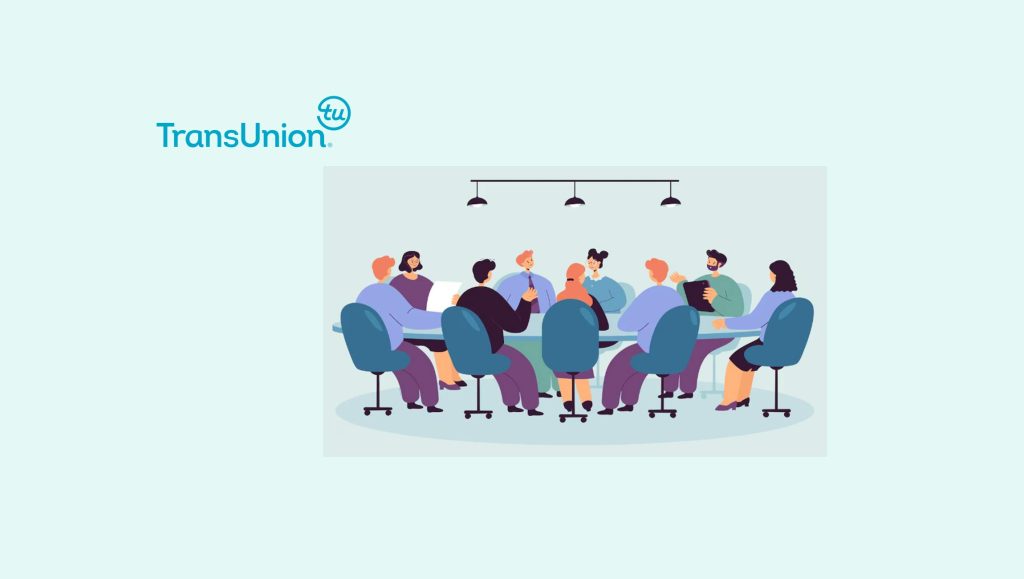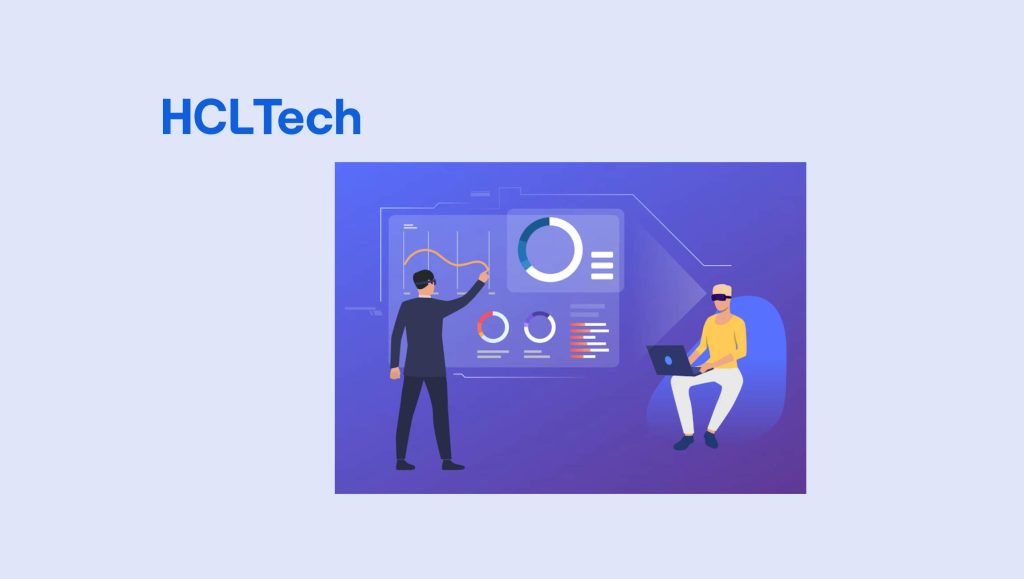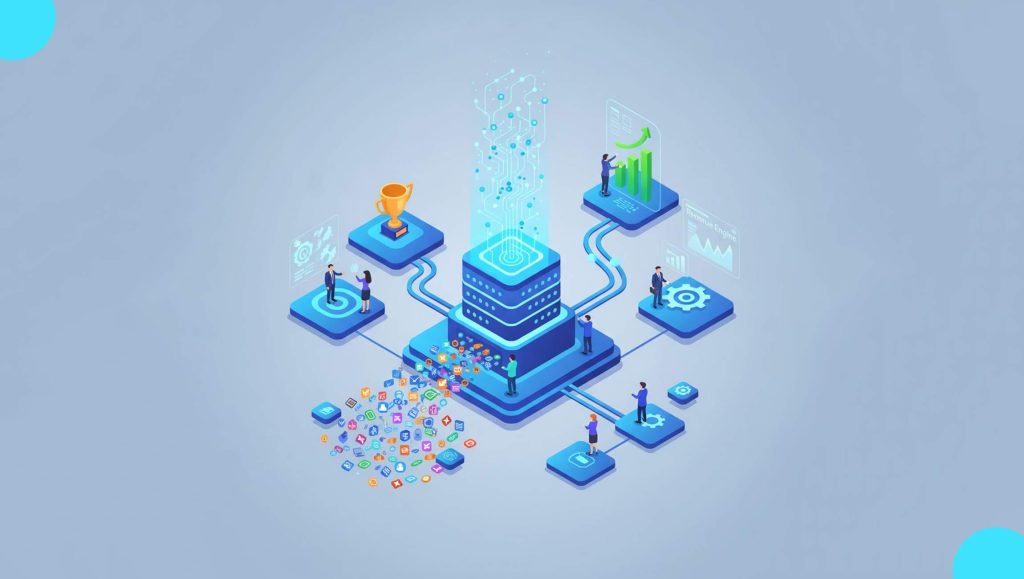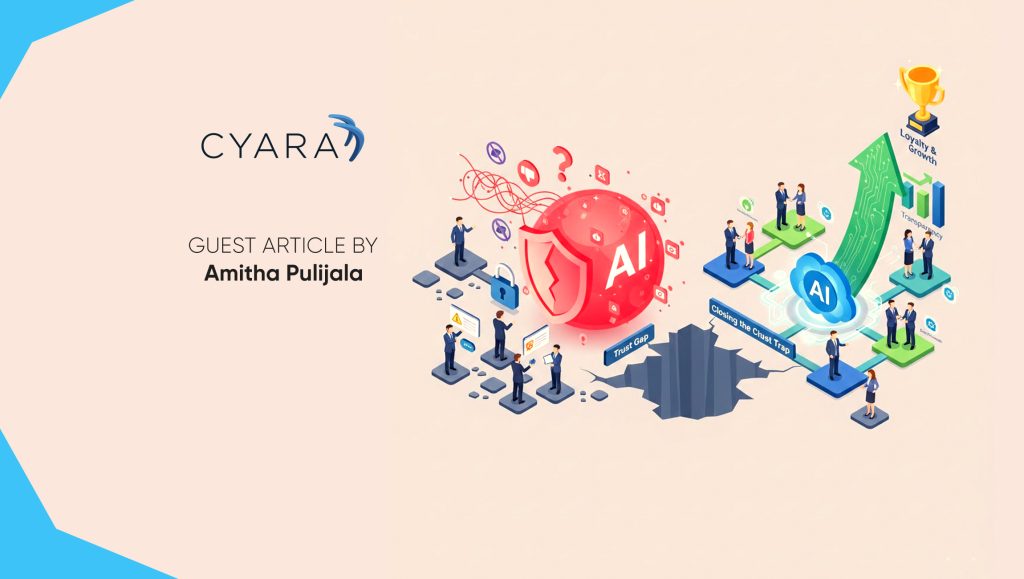Agentforce delivers fully customizable autonomous AI agents that can connect to any enterprise data and take action across sales, service, marketing, and commerce
Agent Builder enables users to build an agent to automate any business process in any industry using existing Salesforce Platform tools like workflows, Apex code, and prompt templates
Customers like The Adecco Group, BACA Systems, OpenTable, Saks, and Wiley are choosing Agentforce Service Agents to drive faster, more personalized responses to customers and build efficiencies across their business
Salesforce, the world’s #1 AI CRM, announced the general availability of Agentforce, a new layer on the Salesforce Platform that enables companies to build and deploy AI agents that can autonomously take action across any business function. Agentforce goes beyond chatbots and copilots, using advanced reasoning abilities to make decisions and take action, like resolving customer cases, qualifying sales leads, and optimizing marketing campaigns. Agentforce doesn’t depend on human engagement to get work done; these agents can be triggered by changes in data, business rules, pre-built automations, or signals via API calls from other systems. Companies like OpenTable, Saks, and Wiley are using Agentforce today to augment their employees, expand their workforce, and improve customer experiences.
“if you can describe it, Agentforce can do it.”
Post this
In addition, Agentforce includes out-of-the-box agents that are easy to customize and deploy with low-code or no-code tools and that work around the clock across any channel. Agentforce Service Agent, the first generally available out-of-the-box agent, outperforms traditional chatbots by handling a wide range of tasks, from simple to complex, with pre-built topics and actions for customer support. Users can customize pre-built agents to serve any industry and any use case, like retail with order management topics, or financial services with billing and payment support topics.
Read More: SalesTechStar Interview with Josh Kanagy, Head of Revenue at Hightouch
“Agentforce is redefining what’s possible in business and beyond, ushering in a new era of AI abundance and limitless workforces that augment every employee, build deeper customer relationships and drive unprecedented growth and profitability,” said Marc Benioff, Chair and CEO, Salesforce. “Built on Salesforce’s trusted, fully customizable platform — seamlessly integrating enterprise data, metadata, AI models, workflows, security and applications — Agentforce is what AI was meant to be.”
With Agentforce, there’s no need to DIY (do it yourself) your AI. Unlike other agent platforms that require complex data integration and custom automation builds, Agentforce is already built into the Salesforce Platform. Customers can instantly turn their existing Flows, prompt templates, Apex, and APIs into agent actions, seamlessly connecting to enterprise data, security models, and automations — with the added power of native tools like Data Cloud, Slack, and MuleSoft. The all-new Agent Builder enables Salesforce admins and developers to use natural language to create instructions and guardrails for their agents.
At Dreamforce 2024, Salesforce customers brought Agentforce to life by building over 10,000 autonomous agents designed to tackle specific business challenges. They learned that “if you can describe it, Agentforce can do it.” With Agentforce, customers can create an on-demand digital workforce that operates without constraints, allowing them to quickly and easily build and deploy agents using the Salesforce tools and language they already know.
Why this Matters:
New Salesforce research shows that U.S. consumers can spend up to nine hours interacting with customer service trying to resolve a single issue. On average, 67% of consumers are frustrated when customer service can’t resolve their issues instantly and choose to walk away from roughly one-third of customer service interactions. This presents a huge opportunity to improve the customer experience with agents.
“Piloting Agentforce made a noticeable difference during one of our busiest periods — back-to-school season. It’s been exciting to go live with our first agent, and we’ve seen a more than 40% increase in case resolution, outperforming our old bot. Agentforce helps to manage routine responsibilities and free up our service teams for more complex cases.” – Kevin Quigley, Director, Process Improvement, Wiley
Read More: Generating Quality B2B Sales Leads: Tactics That Matter
What’s New:
The following solutions are now generally available to all customers:
- Agentforce Service Agent — Now available, Agentforce Service Agent is a customer-facing autonomous AI agent that helps customers deliver self-service with accurate, always-on support across any channel — like voice, WhatsApp, Facebook Messenger, and websites. Agentforce Service Agent can be set up in minutes with pre-built topics and actions for key service use cases, such as case management, reservation management, order inquiries, account management, delivery issues, and general FAQs. Escalations and hand-offs to human reps are seamless, with the full context of interactions instantly shared in the support representative’s service console. For example, a rep wraps up their morning global support call, and before they can even grab a cup of coffee, a team of AI agents has automatically helped hundreds or even thousands of customers simultaneously, ranging from troubleshooting an issue with personalized advice to automatically scheduling field service appointments.
- Agent Builder — Also now available, Agent Builder makes the set-up and activation of an agent simple. Agent Builder enables users to customize out-of-the-box agents or build new agents for any role, any industry, or any use case. Using low code, or no code, Agent Builder brings in structured and unstructured data from Data Cloud and uses existing tools like Flows, Prompts, Apex, and MuleSoft APIs to configure an agent. Starting with the Agent Wizard, users are guided in the selection and setup of the agent. Next, users can create a job to be done for their agent by defining topics, writing natural language instructions within that topic, and creating a library of actions for it to choose from. Users can also easily observe an agent’s plan of action and test its responses in Agent Builder.
Go deeper:
The Agentforce layer is deeply integrated into the Salesforce Platform, powered by data, AI, and Salesforce’s ecosystem of Customer 360 apps, all built on a trusted foundation. The Salesforce Platform expands the boundaries of agents, enabling infinite capacity, proactive actions across any role or channel, and context of every customer interaction with powerful capabilities, including:
- Data Cloud — Data Cloud and the Zero Copy Partner Network allow organizations to harmonize all their enterprise data — both structured and unstructured — no matter where it resides. Data Cloud connects, unifies, and harmonizes customer data and metadata, giving agents access to the exact information they need to deliver precise, contextual responses. Data Cloud makes structured and unstructured data – including emails, transcripts, and PDFs – easily digestible by large language models (LLMs). Now, with new Data Cloud retrieval augmented generation (RAG) functionality, users can also upload files and URLs as data sources for their agent. Data Cloud provides the vital customer data that grounds Agentforce, making agents more contextually aware, knowledgeable, and adaptable to customer needs. For example, when a frustrated customer contacts Agentforce, Data Cloud’s built-in RAG capabilities add real-time insights and context from past emails, support tickets, product photos, voicemails, and other sources as defined by governance policies to help the agent better understand the customer’s perspective. Data Cloud’s hybrid search then identifies the right knowledge article based on customer context to help agents resolve the issue accurately. As customer requests evolve, Data Cloud enables the agent to determine the next best steps, like automating follow-up emails.
- Atlas Reasoning Engine — The Atlas Reasoning Engine, the brain inside Agentforce, autonomously analyzes data, makes decisions, and completes tasks, providing reliable and accurate results. This is what allows Agentforce to act, not just assist. Agentforce doesn’t depend on human prompts or struggle with complex, multistep tasks like now-outdated chatbots and copilots. Atlas is built on a proprietary system designed to simulate how humans think and plan. It starts by evaluating user queries and refining them for clarity and relevance. Then, it retrieves the most relevant data and builds a plan for execution. The process then refines the plan further, ensuring it’s accurate, relevant, and grounded in trusted data. Created by the Salesforce AI Research team, the Atlas Project initially involved a select set of customers but grew considerably after research showed the results Agentforce could deliver were twice as relevant and 33% more accurate than other available solutions. Salesforce AI Research continues to push what’s possible in the agentic AI space, incubating with strategic customers and bringing innovation to the edge of the roadmap.
- Trust & Security Built-in — The Einstein Trust Layer protects customer data through robust security features and guardrails like zero data retention, toxicity detection, secure data retrieval, and dynamic grounding — improving the safety and accuracy of outputs while ensuring the responsible use of AI agents across the Salesforce ecosystem. For example, the Audit Trail feature empowers customers with the necessary data to track AI agent actions and outputs, ensuring AI usage complies with their organization’s security, privacy, regulatory, and AI governance policies. Additionally, Salesforce has released a new set of principles and ethical controls, known as trust patterns, to enhance the reliability of the AI agents and ensure a seamless partnership between humans and AI. These patterns include hallucination reduction with topic classification, opt-out functionality, and design decisions to ensure proper human oversight.
- Customer 360 — Agentforce is deeply integrated with Salesforce Customer 360, leveraging the full power of applications like sales, service, marketing, and commerce. It provides a complete view of the customer, enabling seamless hand-offs to human agents with the full conversation history.
- MuleSoft capabilities — MuleSoft is an industry-leading integration, automation, and API management platform, managing 205 billion integration flow monthly executions and 331 billion automation flow monthly executions. MuleSoft can extend Agentforce capabilities by enabling Salesforce developers and admins to leverage their APIs and bring in third-party data.
- Salesforce Flow capabilities — Customers have been building workflow automations in Flow Builder since 2019, with an estimated 4 trillion flows built annually and 5.6 billion hours saved, according to Salesforce research. Agentforce can take action by invoking any existing process flow created in Flow Builder, such as elevating a priority of a customer case ticket.
- Slack — Slack empowers every employee with agentic skills in the flow of work, making it the best place to deploy Agentforce for employee-facing use cases. Users can build and customize employee agents, tap into better context with more relevance, and work side-by-side with agents right where work is already happening in Slack.
Agentforce Industry Examples:
The flexibility of the Agentforce platform is critical to tailoring each agent to serve a specific use case or industry. Customers can expect agents in the following sectors:
- Communications — A billing resolution agent provides faster customer support around billing inquiries and resolves issues faster to boost team productivity and improve customer experiences. For example, if a customer submits a complaint or question about a specific charge on their account, the agent can analyze past monthly bills, identify the issue, and validate dispute requests to arrive at a solution based on business rules.
- Education — A recruitment services agent provides immediate, personalized assistance to prospective students, 24/7. Instead of receiving repetitive or reactive responses from a chatbot or having to wait for support from staff, prospective students will get the tailored information they need in real time. The agent will be able to engage in a dynamic conversation and answer multiple questions on financial aid, specific majors, and other topics while providing helpful recommendations for students.
- Banking — A banking service agent provides faster responses to customer service inquiries and automates complex manual tasks like facilitating transaction disputes. For example, the agent can autonomously retrieve recent transactions from an account, coordinate with customers to identify unauthorized charges, notify merchants of disputed charges, and issue provisional credits to customers — all before a human agent needs to intervene.
- Insurance — An insurance service agent helps insurance brokerages automate time-intensive processes, such as plan year renewals, and identify potential retention risks. For example, the agent can proactively analyze client data, detect gaps in client coverage, and create action plans with recommendations for potential plan adjustments or additional coverage options to fill the gaps.
- Healthcare — A patient services agent answers inquiries and helps schedule the best physician for a given patient based on their needs. For example, the agent will be able to review coverage benefits, generate medical history summaries, and approve care requests.
- Life Sciences — A medical sales agent proactively manages inventory and generates contracts with hospital systems. For example, the agent will be able to curate promotional content based on clinical studies and an HCP’s specialty.
- Manufacturing — A proactive maintenance agent monitors the vast amount of data being generated by connected assets — including machinery, industrial equipment and vehicles, appliances, and devices — in real time. For example, the agent will be able to identify declining performance or potential failures, proactively alert customers to the issue, and help them set up a service appointment. It will also be able to provide detailed summaries so customer service representatives and technicians can quickly understand case history to better serve customers.
- Public Sector — A DMV help agent helps answer questions about registration, licenses, and appointments. For example, the agent will be able to help provide guidance to someone selling their vehicle to ensure everything is properly reported to the state.
- Media — An advertising proposal agent helps advertising sales teams respond faster to campaign briefs and requests for proposals (RFPs). For example, the agent will be able to suggest the right combination of ad products, target audience, and placement details that fit the campaign’s needs and KPIs, and help kickstart a comprehensive media plan on behalf of an ad sales team.
- Retail — A personal shopper agent acts as a digital concierge for online shoppers, using generative AI to provide personalized assistance on ecommerce sites, chat, or messaging apps like WhatsApp. Unlike basic chatbots that are limited to answering predefined questions, it taps into a retailer’s catalog and product data, learning from shoppers’ behavior and preferences. This allows shoppers to use natural language search, get conversational responses, and quickly add items to their cart for instant checkout.






















